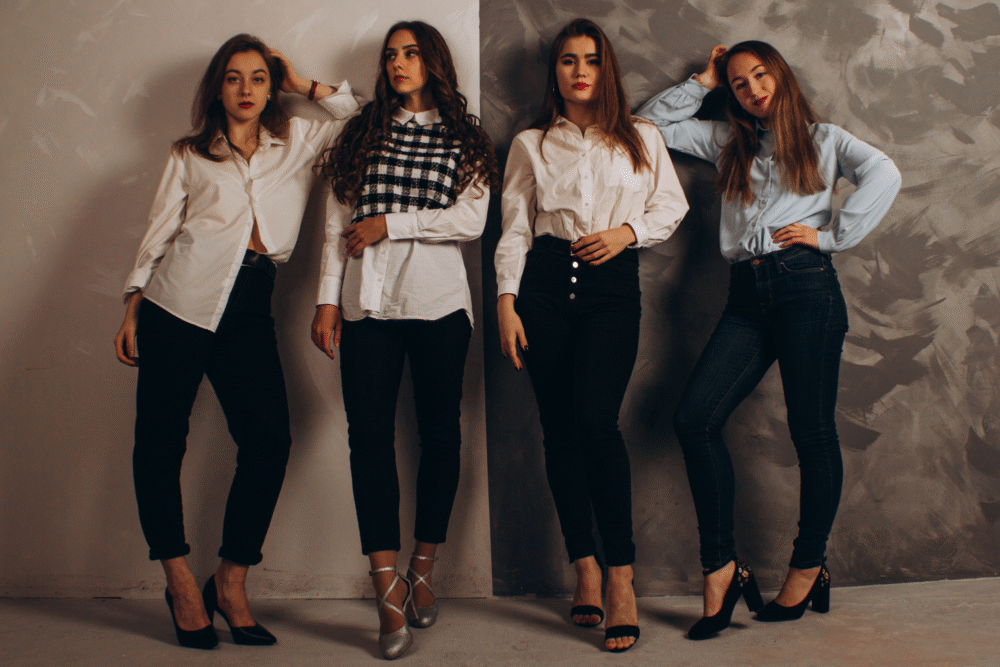The generational glow-up Gen Z expected from millennials never showed up.

Millennials thought they’d be the cool older siblings—tech-savvy, progressive, and emotionally evolved. But when you ask Gen Z? The vibe is more cringe than mentor. The praise is rare, the critiques are unfiltered, and the eye-rolls are plentiful. Turns out, the generation raised on avocado toast and Harry Potter references might not be aging as gracefully as they hoped.
Gen Z isn’t angry, they’re just deeply unimpressed—and painfully honest about why.
1. ’Adulting’ jokes are not as charming as millennials think.

To Gen Z, the millennial obsession with “adulting” sounds like a weird brag about doing the bare minimum. Talking about paying bills, cooking dinner, or buying toilet paper as if it’s heroic doesn’t feel relatable—it feels like watching someone discover responsibility for the first time and wanting applause. Gen Z grew up fast, surrounded by chaos and climate anxiety. So, when they see a thirtysomething post a meme about folding laundry with a gold star emoji, the reaction isn’t empathy—it’s confusion. Adulting isn’t a punchline anymore. It’s survival. And the way millennials frame it can come off as naïve at best, or self-indulgent at worst.
2. Millennials are weirdly obsessed with personality quizzes.

If Gen Z sees one more adult define themselves by their Hogwarts house or Myers-Briggs type, they might combust. To them, millennials lean a little too hard on prepackaged identity labels. BuzzFeed quizzes and Enneagram types were fun once, sure—but now they feel like crutches. Instead of exploring growth, millennials often seem content sticking to a digital label like “INFJ, obviously” and calling it depth. Gen Z finds it a little shallow, maybe even performative. They’d rather you explain who you are in your own words—not through a color-coded infographic or fictional wizarding school affiliation.
3. They cringe at how millennials brand every part of life.

Brunch isn’t just brunch for millennials—it’s a lifestyle. Same with wine nights, indoor plants, and carefully curated coffee corners. To Gen Z, this all looks suspiciously like trying too hard to turn existence into a brand. Life doesn’t need a hashtag. Every couch pillow and oat milk latte doesn’t need a vibe check. Millennials have a tendency to aestheticize everything until it feels more like a Pinterest board than a personality. Gen Z prefers messier edges. They want substance without the filter and think living authentically doesn’t require a matching font or an Etsy-worthy tablescape.
4. Millennial fashion nostalgia is stuck in the wrong era.

Middle parts and wide-leg jeans didn’t just return—they roared back because Gen Z dragged millennial fashion into 2025. Millennials clung to side parts, skinny jeans, and oversized scarves with a stubbornness Gen Z still jokes about. The younger generation isn’t against nostalgia—they just pick theirs more selectively. They view millennial trends like peplum tops and chevron everything as cautionary tales. It’s not that Gen Z wants to be mean. They just want millennials to let go of the Forever 21 clearance rack version of cool. The past is fine, they say, but please update the playlist—and the closet.
5. They think millennials overshare emotions without doing the work.

To Gen Z, talking about your anxiety or trauma isn’t enough—you have to actually unpack it. Millennials popularized the mental health conversation, but Gen Z says they often stop at awareness and turn it into content. Posting “self-care” memes or venting in a story highlight reel isn’t the same as therapy. Gen Z sees it as emotional theater—raw but not resolved. They respect vulnerability, but they want follow-through. Millennials, in their eyes, are all caption and no arc. The Gen Z motto? Don’t just name your demons. Call them out, work through them, and stop turning them into punchlines.
6. Their corporate loyalty feels out of touch and a little sad.

Millennials still hold out hope for promotions, office perks, and dream job titles—Gen Z thinks that’s adorable. Or tragic. They watched millennials burn out trying to rise in systems that don’t reward loyalty. So when millennials rave about their company swag bag or stay late for a team-building Zoom, Gen Z doesn’t see dedication. They see someone stuck in a bad relationship with capitalism. They’re not mad about it. They just wish millennials would wake up and stop romanticizing hustle culture in PowerPoint slides. Gen Z’s motto? Get the bag, protect your peace, and log off on time.
7. They roll their eyes at how millennials romanticize their childhoods.

Millennials really love to talk about their Tamagotchis, Blockbuster nights, and how they “survived” without smartphones. Gen Z gets it—but also kind of doesn’t. To them, millennial nostalgia sometimes sounds like someone stuck in a rerun of their favorite ‘90s sitcom. It’s not that they hate the past. They just think living in it 24/7 is a weird flex. Constant throwback posts and “only ‘90s kids remember” energy feels more like escapism than fond memory. Gen Z wants to move forward, not live inside a Lisa Frank binder forever. They’d prefer you grow up—and maybe log off Tumblr while you’re at it.
8. They find millennial influencer culture exhausting.

Millennials birthed the curated influencer aesthetic—flat lays, fake candid smiles, and “just woke up like this” lighting. Gen Z has no patience for it. They prefer raw over perfect, blurry over filtered, and chaotic over posed. To them, millennial content is like watching someone rehearse authenticity. It’s all too smooth, too edited, too thirsty. They want creators who mess up mid-sentence, wear the same hoodie three days straight, and don’t apologize for it. Millennials thought they were being aspirational. Gen Z just sees performance, and they’re not buying the brand—even if the captions say “real talk.”
9. They think millennials made being basic into a lifestyle.

Pumpkin spice lattes, “wine mom” energy, Target hauls, and matching holiday pajamas—Gen Z calls it out every time. Millennials didn’t just embrace basic culture, they leaned into it like it was a personality trait. Gen Z doesn’t want to cancel joy, but they roll their eyes at how some millennials turned consumerism into identity. It’s not the items—it’s the sameness. When everyone’s doing the exact same “cozy fall vibes” post, it stops being fun and starts feeling like a personality void wrapped in buffalo plaid. Gen Z doesn’t want everything to be quirky—they just want it to be you.
10. They don’t hate millennials—they just expected more.

Here’s the brutal part. Gen Z doesn’t actually loathe millennials. They just feel let down. This was supposed to be the generation that broke systems, made workplaces humane, and taught the world to cry in a cool way. Instead, millennials ended up stuck—trying to be friends with their bosses, addicted to hustle culture, and still clinging to iPod-era references. Gen Z had high hopes, and they’re not mad those hopes didn’t land. They’re just disappointed. And in true Gen Z fashion, they’ll mock it—ruthlessly, publicly, and always with a meme.
